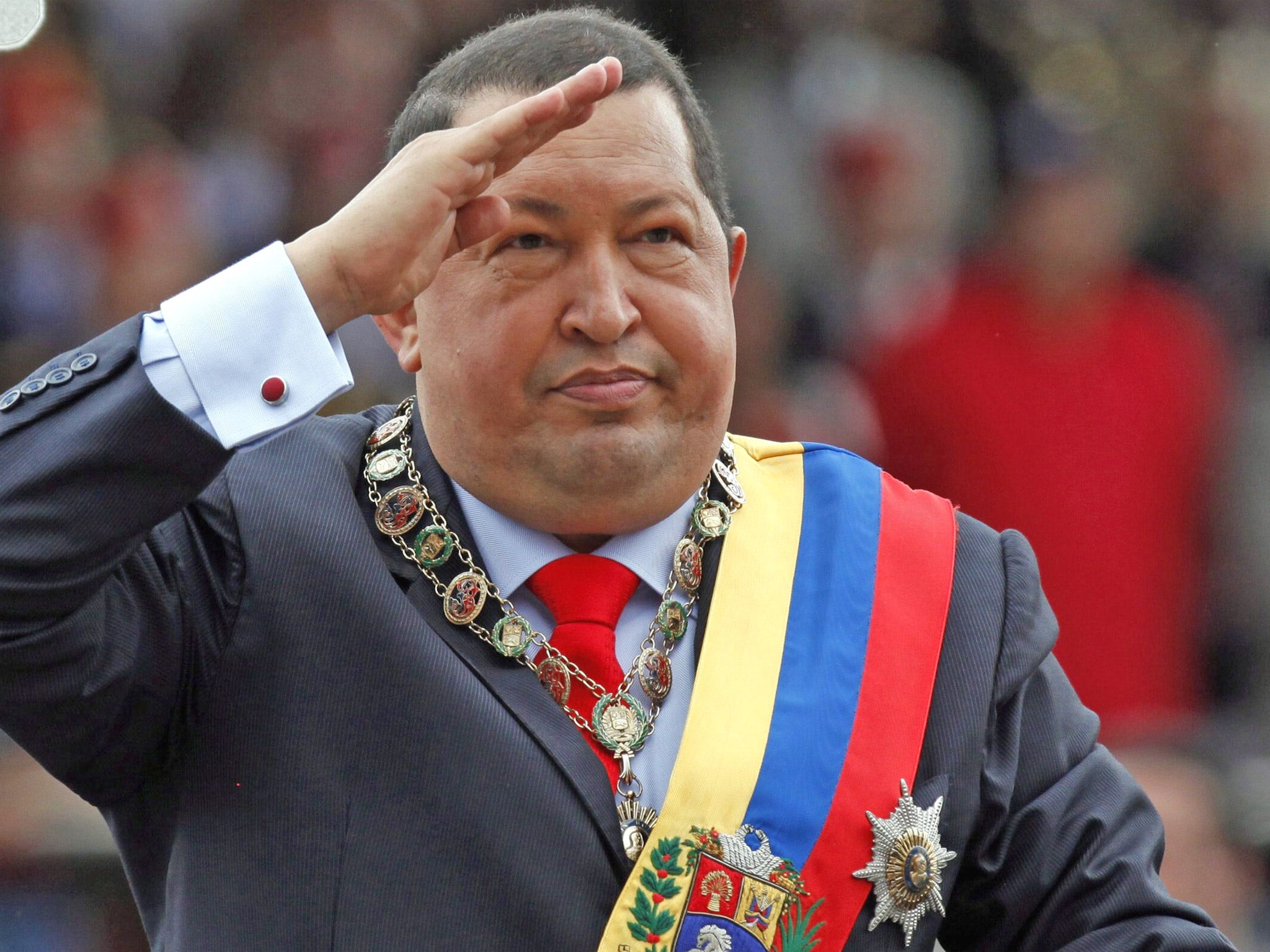Debate: How will history judge Hugo Chavez?

Your support helps us to tell the story
From reproductive rights to climate change to Big Tech, The Independent is on the ground when the story is developing. Whether it's investigating the financials of Elon Musk's pro-Trump PAC or producing our latest documentary, 'The A Word', which shines a light on the American women fighting for reproductive rights, we know how important it is to parse out the facts from the messaging.
At such a critical moment in US history, we need reporters on the ground. Your donation allows us to keep sending journalists to speak to both sides of the story.
The Independent is trusted by Americans across the entire political spectrum. And unlike many other quality news outlets, we choose not to lock Americans out of our reporting and analysis with paywalls. We believe quality journalism should be available to everyone, paid for by those who can afford it.
Your support makes all the difference.
What's going on?
After struggling for many gruelling months with cancer, the form of which was never fully disclosed, Hugo Chavez, the firebrand president of Venezuela, adversary of the United States and former soldier, finally succumbed - passing away at the age of 58 in a Caracas military hospital. You can read the full Independent story here.
In the wake of Chavez's death, the President's supporters and critics renewed debate over the legacy of a socialist icon.
But will history look kindly on Chavez? Or judge him a tyrant?
Case for: Oppression
Chavez's charisma and ostensible concern for social justice blinded many to the man's flaws when he was alive, and this blindness can only be expected to increase after death. For a corrective, all one needs to do is head over to Human Rights Watch. They document how Chavez jailed critics (and those who dared release them from prison). They also show a shackled press. Criticisms of the government were censored and, after many media platforms had been pressured into closure, criminal charges were pressed against the owner of the last remaining TV station that dared speak out. Don't be fooled by cheerleaders in the West or cheering crowds in Venezuela, when it came to people Chavez didn't like, basic human rights meant nothing.
Case against: Justice
Neo-liberal Western powers are profoundly anxious about the kind of society Chavez created. This anxiety translates into attempts to discredit Chavez himself, and in doing so discredit the fairer social system he established. So let's knock some straw men over: Since Chavez was elected to office in 1998 - promising to use oil money to help the poor - he went through 17 democratic elections and referenda, none of them credibly disputed. While he was in power millions of Venezuelans were lifted out of poverty. Call this man a tyrant and all you do is take the line parroted ad nauseam by an elite who hate the idea of a government based on spending to help the poor.
Join our commenting forum
Join thought-provoking conversations, follow other Independent readers and see their replies
Comments